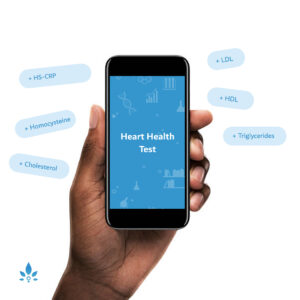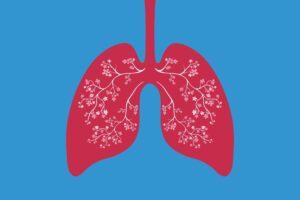What is Postnatal Depression?


- Postnatal depression is a condition that affects 1 in 10 women post birth.
- It is normal to feel anxious and tearful for a couple of days after giving birth (baby blues). If these feelings do not go away or starts later, seek professional help as it may be postnatal depression.
- Triggered by childbirth, postnatal depression is a condition that requires treatment and support.
- Trying to manage by yourself is not only detrimental to your own mental wellbeing but can also affect the long term relationship between a mother and a child.
Postnatal depression (or postpartum blues) is a condition that affects up to one in ten women after the birth of their baby. However, it is not a condition restricted to females and new dads are also susceptible to mental health difficulties in the weeks and months following a baby’s arrival.
Symptoms of postnatal depression
It is very common for new mothers to feel tearful, anxious and sad in the two weeks after having a baby; so common, in fact, that the so called ‘baby blues’ are considered to be entirely normal. However, if the feeling of sadness does not go away, or starts later on, you should speak to a healthcare professional.
Postnatal depression is not a simple condition, with a simple set of symptoms. It varies significantly between people, both in terms of severity and the specific symptoms experienced. Some of the most frequently seen symptoms are:
- Frequent crying
- Lack of energy/tiredness
- No longer enjoying things that used to give pleasure
- Disturbed sleep patterns
- Difficulty bonding with baby
- Concentration problems
- Loss of appetite/increased appetite
- Feeling agitated, irritable and/or apathetic
- A sense of guilt or hopelessness.
It is important to remember that many of these symptoms are common in the weeks and months that follow a baby’s arrival. With a new baby, comes sleep deprivation, major lifestyle adjustment and the reestablishment of familial roles, as husband and wife become daddy and mummy. However, if the feelings are prolonged, or you experience a number of them at any one time, it might be worth seeking help. Trying to manage by yourself is not only detrimental to your own mental wellbeing, but can also impact the longer-term relationship between you and your baby.
What causes postnatal depression?
There is no definitive answer to this question. Certainly, the surge in hormones after giving birth can play a role. However, the fact that new dads are also susceptible to the condition means that it cannot be solely attributed to fluctuating hormones. Whether it is entirely distinct from major depressive disorder, or a specific form of the condition, triggered by childbirth, is unclear. What is known is that certain people have a greater risk of developing postnatal depression. These include those with a history of mental health problems, those with a limited social support network, or poor relationship, and those who are experiencing stressful life events.
How should postnatal depression be managed and treated?
If you suspect you may be experiencing postnatal depression, the most important thing is to seek help and treatment promptly. Left unmanaged, postnatal depression can impact the relationship you have with your baby and your family. Having postnatal depression is nothing to be ashamed of and with the right help and support you can overcome it. There are various options for managing the condition, which your doctor can talk through with you.
For mild cases, supported self-management might be possible. Taking the time to talk, rest, exercise and eat healthily and regularly can greatly improve a person’s emotional wellbeing. It can be difficult to factor in time for yourself when you have a newborn, but try to ask your partner and family for help; in most instances they will be pleased to be involved. If possible attend local support groups, talking to people who are in the same position and feeling a similar way can, in itself, be therapeutic.
In some cases, treatment is required. This may come in the form of talking therapy, such as cognitive behavioural therapy (CBT) or antidepressants. CBT can be used to help a person think in a more positive way and to avoid thoughts that are unhelpful or unrealistic. New parents often place unreasonable demands on themselves, which can then lead to feelings of guilt, failure and ultimately depression when these expectations are not met. Antidepressants are mood stabilisers, enabling those who take them to function normally. This approach is most likely to benefit those with a history of depressive episodes.
Try using Nabta’s Depression pack to alleviate your symptoms.
Postpartum Psychosis
Postpartum psychosis is distinct from postnatal depression and fortunately, is very rare, affecting approximately 0.1% of new mums. It is a serious condition, requiring immediate medical assistance. Symptoms include delusions and hallucinations, as well as periods of mania and depressive episodes. It will usually require a hospital stay, but, with the right support, most women do make a full recovery.
Sources:
- Postpartum Depression: Action Towards Causes and Treatment (PACT) Consortium. “Heterogeneity of Postpartum Depression: a Latent Class Analysis.” The Lancet. Psychiatry, vol. 2, no. 1, Jan. 2015, pp. 59–67., doi:10.1016/S2215-0366(14)00055-8.
- Jones, I, and J Shakespeare. “Postnatal Depression.” BMJ, vol. 349, 14 Aug. 2014, p. g4500., doi:10.1136/bmj.g4500.
- “Postnatal Depression.” NHS, www.nhs.uk/conditions/post-natal-depression/.













































